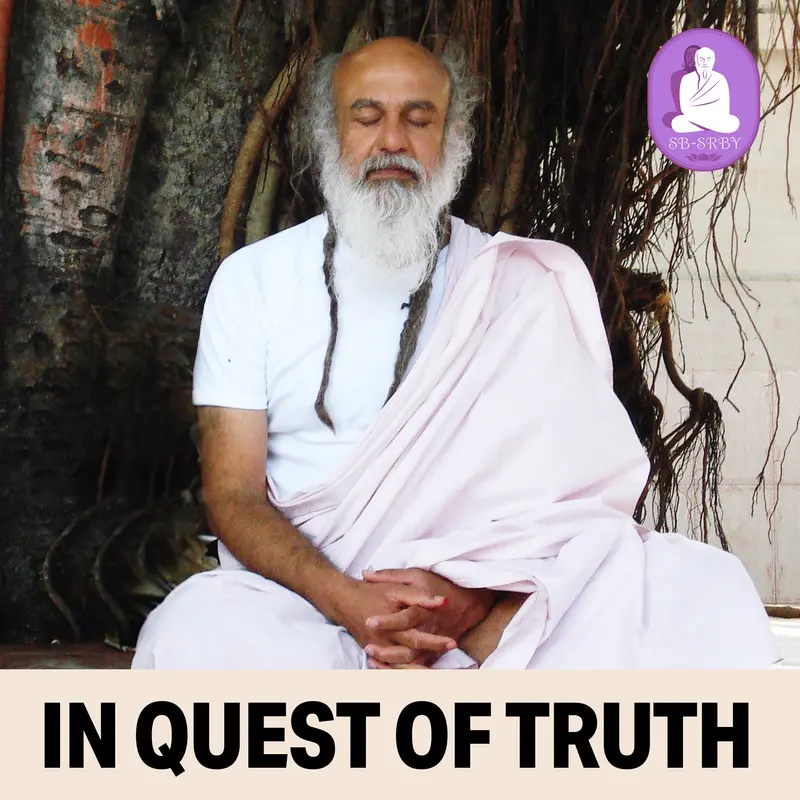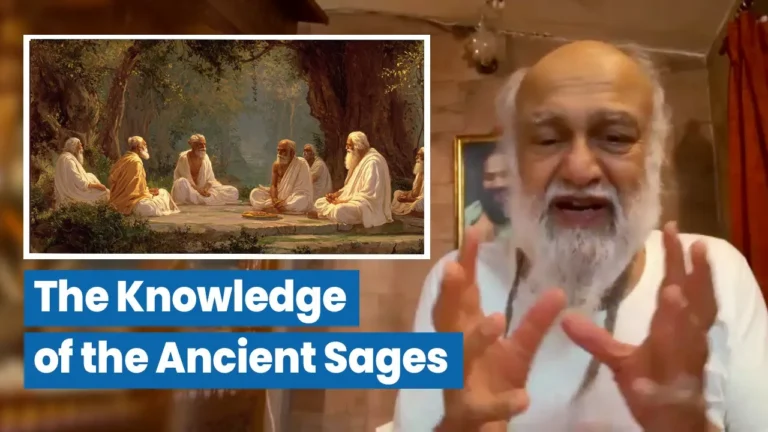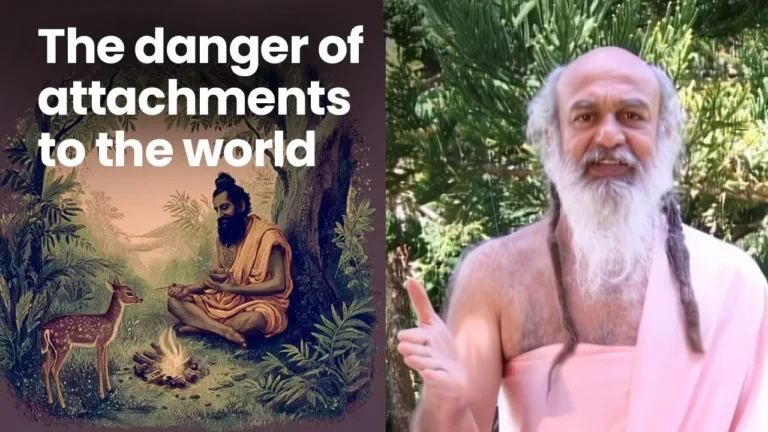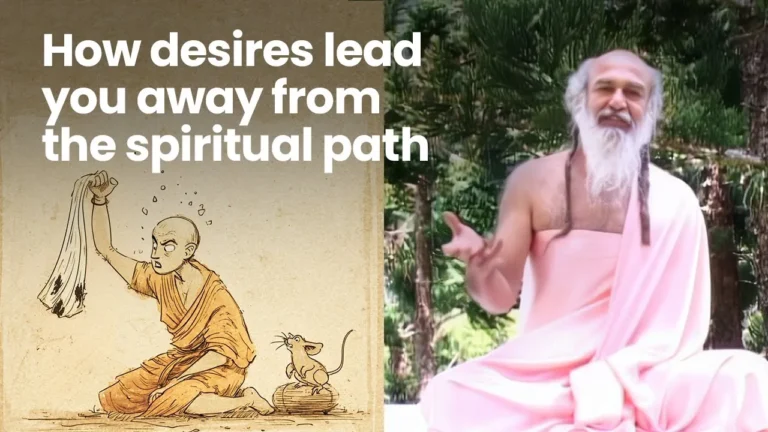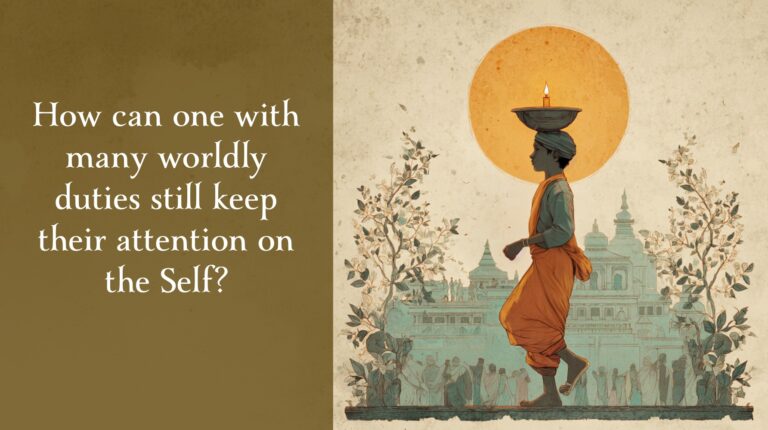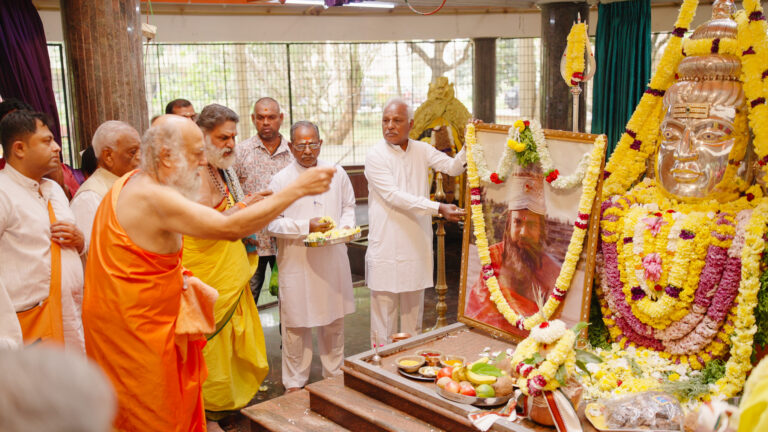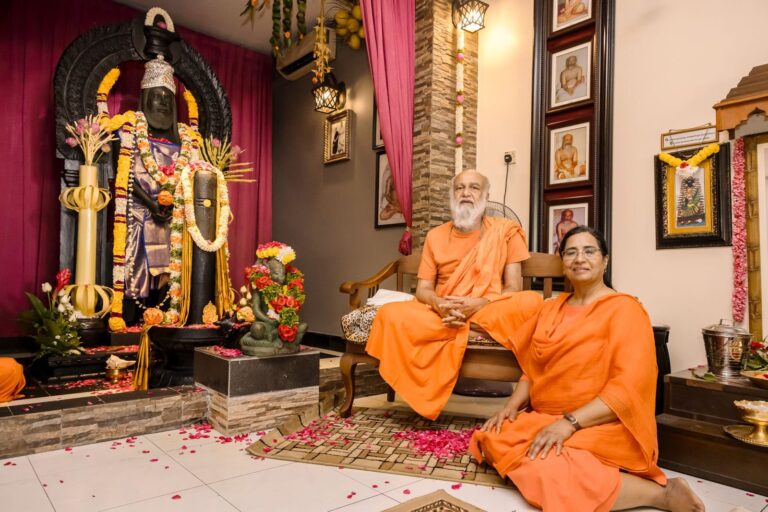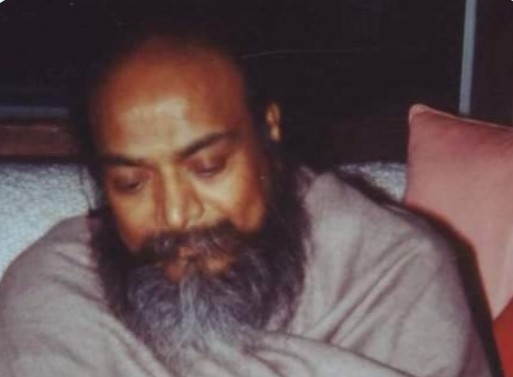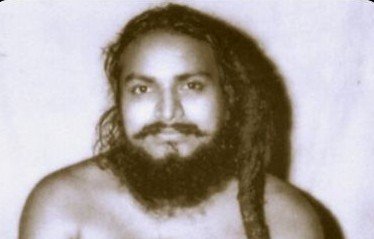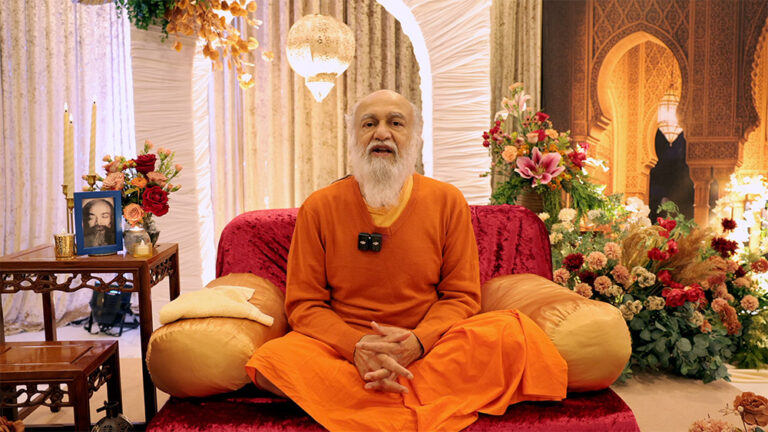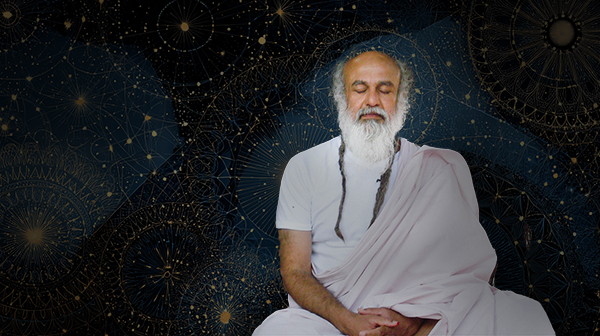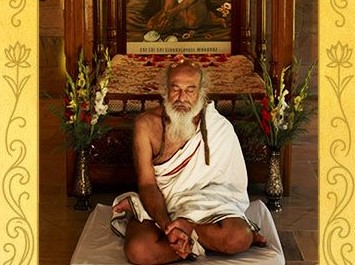0:14 Why is this meditation technique called ‘Jangama Dhyana’?
2:38 The technique
12:38 Watching and thinking – the secret of not getting involved into the thoughts
20:40 What duration of meditation does Babaji recommend?
22:08 The importance of practice
23:51 When should we meditate?
26:33 Do we have to have a specific diet?
28:13 Benefits of this meditation for a householder
Jangama Dhyana – the Meditation Technique for Self-Realisation | Ambaji asks Shri Babaji
Recorded at the Meditation retreat held at the Devarayasamudra Ashram, February 2024.
Ambaji: Pranams Babaji. Baba, I would like to ask a few questions regarding Jangama Dhyana. First, what is the Jangama and why do you call it a Jangama Dhyana?
Babaji: Swamiji, one day when He was walking on the balcony of Dehradun Ashram, almost midnight, one-thirty, I was alone, and suddenly He asked, “Shall we call our Dhyana as the Jangama Dhyana?” Then He said, “In that form only Lord Shiva came to me from a fruit, with Omkara Dhwani which took shape of a Shiva Lingam, and that broke into two pieces and fell down, then I saw this Jangama Deva”, that’s how He used to call. “In that area, there were the Shaivites, like the Shiva worshippers. They used to have in their neck a chain and a Shiva Lingam. So, they were recognized as Jangama Deva.” Further, Swamiji explained to me, “You know, Jangama means eternal. Dhyana is your attention, paying attention, gaining awareness. That’s equivalent to a Self-Realization. So that’s why if we call it Jangama Dhyana, so, your meditation on the eternal existence of the Ultimate Truth.” So, like that He explained and told me. He told the opposite word also. Sthavara is the opposite word to tell impermanence, aśāśvata, impermanence of any existence. Jangama is eternal, which has no destruction, no disappearance, nothing will happen ever. So that’s how He said one time. It was his habit, He wouldn’t impose anything, He would ask for my opinion or willingness sometimes, “How about calling our Dhyana as Jangama Dhyana?” So, years later I remembered that point. That’s when I told some of our devotees, our organizers, “We can try to call this as a Jangama Dhyana.” So that’s how this Jangama Dhyana has come into existence.
Ambaji: So, Baba, could you please explain a little bit more about the technique, how the eyes which go parallel, what happens when the eyeballs come steady and the mind gets withdrawn? Could you please explain a little bit more about the technique you always teach?
Babaji: The amazing illusion that has happened. It is here; the Ultimate Truth also is here which is not imagining, which is totally in stillness – that’s known as Mahasamadhi. So, within this, in the same sphere, ‘Aavarana’ is the word Vasistha uses if you remember, right? In the same sphere, that small portion, a droplet of that stillness operates as the mind, first giving you as an individual imagined self. Always it is the ‘me’ and ‘mine’, that’s when the trouble starts. Then it can take you into life after life, life after life, millions and billions, you never know. Time – long that happens. Now, to control this mind which is operating, spinning within a sphere, so that it can merge. For that, this which is operating as the mind has to stop its spinning; slowly it slows down, so then it has to come closer into becoming single-pointed. Then once it comes like this, then it merges and becomes one with the Self again. That means it has expanded into its Real Self. For that to happen, is the technique taught: Keeping the eyes closed, you just concentrate the eyeballs, using the eyeballs, focus, remain focused; your mind and sight. Sight means here, eyeballs, you fix the eyeballs. So, you see, even open eyes also if you steadily, firmly watch like this with the eyeballs, your mind also is here. And even if somebody comes, you won’t immediately be able to make out who it is. Even if a little bit is visible, somebody is coming, then you have to stop this job and then I have to see like this, if we have to attend to that person. So that is the power of focus. When you are focused, you don’t see anything. That is the thing in Mahabharata when Dronacharya asked all the students, keeping one target of a parrot on the tree branch. He told, what all you can see? He went on asking every student. One said, “The beautiful sky, and the big tree, and the parrot.” He said, “You are not focused well.” Like that everybody went on answering “This, that also I can see, I can see Clifford, I can see Geordie, I can see him also.” “So your focus is not.” Finally, when Arjuna came, “I can see the neck, one neck is there, that is all.” He said “Shoot the arrow, your focus is perfect”, Dronacharya says. That focus is what here we are trying to teach you. First, that is why no target is given. You don’t have to bother what is it that you have to watch. When I have not told you what is it that you have to watch, so why should you bother what is it that you have to watch? “The Master has told me to watch, so I am just watching.” Swamiji, many times when people asked Him questions, “Why did you do this one, why did you do one-year tapas?” He simply used to tell, “My Dhyana Guru told me this to do and I did it.” Means that was the childhood innocent faith. He was 14 years old when the Jangama Sage asked, “Watch in between eyebrows by focusing your mind and sight.” And he said, “Don’t repeat anything.” He did not repeat, “And don’t imagine anything.” Like Swamiji recalling this, He used to tell me, “When the Jangama Sage kept [here], all I heard him telling was, “Just keep watching here by focusing the attention of mind and sight and then don’t repeat anything.” I did not repeat anything. “Don’t imagine” – I never tried to imagine anything, what it is. Whatever happened, I just was watching. I thought, just watching is my duty, that is all. Like the soldier tells, just standing here with the gun is my duty. Until I am not commanded to shoot, I won’t shoot. So that’s my job. The Guru has commanded me to watch. I went on watching and Samadhi came like that”, Swamiji said. So, it could be as simple as that. But yet we are habitual and we make it so complicated. Thoughts are coming, we are unable to get rid of the thoughts, all this happens. So, this is the idea of asking you to just watch.
So now, eyeballs move parallelly, they don’t come into one direction easily. So that’s why we tell, remain relaxed, don’t get confused trying to locate this point. That’s when you are running and it’s running, you’re running and you lose anything else, control over that one, you get confused. Instead of that, just watch. Even if both are at a distance, not coming immediately into the central point, no problem. First steady the eyeballs so that its movement stops for a while. That is more important. When it stops, it holds the mind also there, stops the mind there. And once mind also starts stopping, then it starts coming into one direction, both of them. So, this takes time and requires enormous patience of yours. That patience is what is known as meditation. That patience is what is known as tapas. Your ability to keep quiet. Then it comes slowly, comes. So, like when the eyeballs are in a distance, the vision also is in a distance for you. As they start coming closer, the vision starts coming closer and closer. Sometimes I have mentioned, when a road is mentioned as painted or drawn, this point where it comes, a vanishing point it is known as. After that you don’t get to see the road further. So as long as your vision goes, you can see this is known as the vanishing point. We were told by our teachers sometimes, that’s what I remember. So, like that, that vision is there but as your eyeballs are coming, that starts coming closer. This vanishing point comes closer, closer, that means your mind also is coming closer. So, when you gain the ability that you are able to hold on to that, in this meanwhile, millions of thoughts come to disturb you enough. So, the moment you recognize the thought as a good or a bad, a happy or unhappy, you do the first mistake and then you end up analyzing and making a judgment and you are gone. So, you miss the eyeballs and the mind goes somewhere else and suddenly you will regain, “Oh I was supposed to be meditating here, where am I going, what am I doing?” that type of thing happens. So that’s what first instance itself you have to avoid. In the advertisements about drugs and drug addicts they tell, “Say no first time, second time say no, third time say no, at all times say no, never even try to taste it for a while, you are gone, you can get carried away.” This is such an intoxicating… analyzing the thoughts, recognizing the thoughts, knowing this world and trying to analyze can be very intoxicating. Once you get involved, you don’t like to give it up. So that’s what happens. So that’s what you have to maintain, quietness, your ability to keep quiet, then it comes, comes. When it comes closer, then that means it is purified. Then it starts merging with the Self. So, until it comes here is your effort. You put in effort. You require the patience. After that, it is automatic Divine activity. Just like, until you press the accelerator, start the engine and press the accelerator, it is your effort. Once you press, the vehicle moving is automatic, that type. So, then merging, merger happens. So, this stage is that you meditate and rise to the level of tapas and patience. During this time enormous tests happen to test your ability to remain patient. This patience you practice when, in the services of the Master you are able to bear with humiliations and you don’t exercise any ego, don’t bother to analyze anything; “Why the Master has asked me to do this thing”. You are happy even if you have to be dusting and mopping, you never think “Is this all I have to do?” So, this is what is needed to do so that you could lose ego – we were discussing in the morning also. So, this is the important factor if everybody can understand, then the actual technological meditation progresses, smoothly happens, then results come, the peace descends. So, this is what has to happen.
Ambaji: Baba, you explained very nicely the watching, how one has to watch, and during the watching should not think. Baba, Swamiji was definitely a superhuman. In one command, He went into the Samadhi. But someone like a very ordinary person, in the beginning, when they get initiated or when they start the practice, even though they try to watch they don’t have the understanding that the watching and thinking are two different aspects; watching is different, and thinking is different, and they get carried away. So, what is the secret? For a beginner, suppose I am a beginner and I am just sitting, what is the secret that I should not get involved into the thoughts, first of all?
Babaji: See, of the four sentences that are instructed, ‘Sitting in any comfortable posture, gently close your eyes. Keeping the eyes closed concentrate your mind and sight and just keep watching in between eyebrows. Don’t repeat anything’. If you repeat anything, your attention gets disturbed, means divided. You have to concentrate on the mantra and the japa also, you have to concentrate here – so that needs to be avoided. Single pointedly you are focused only on one thing, not two things, that’s why no mantra is needed, don’t repeat anything. Third one is more important, ‘Do not imagine about anything’. So, you have to understand this sentence, ‘Do not imagine about anything’. Means you sit, you open the eyes, do not imagine about anybody, anything, of what it is. That’s what the mind starts thinking, “What is this? Why is this? How is this?” These are the things that come, so you must restrain yourself and keep quiet. Not analyze, not bother, that is important. Once you understand this, you don’t bother anything that happens. If it appears, it’s not your job to know what it is. You are not asked to… there is no such instruction. Any visions that happen that you try to analyze first and research and try to know, that means hundred thousand life cycles you will never know the Self. So it is said, ‘Do not imagine about anything’. Repeatedly, when you go back also remember this, this should ring in your ears what Baba said, ‘Do not imagine about anything,’ during meditation. People don’t pay attention. For this purpose, in our culture, first step; a Guru-disciple relationship is taught and recommended. It is taught to us that the Guru is equivalent to Divine, first thing. Why? It is expected if you ever come across God, it should be awesome for you and reverentially you surrender immediately. You don’t bother anything else. And nothing else is important in front of God if it happens. Mean tshat much of priority you give to the Guru when you go to learn from the Guru. That’s when you can obtain expertise in that, you will learn. Means you’ll pay attention when the Master is talking, it’s very seriousness, you don’t think about anything. If you have that reverence to the Master, you will pay attention. Otherwise, hundred people sitting, some are casual, some are thinking, “When is he going to stop, I have to go home now, I need to drive, it’s late for me.” Another thinking, “I don’t know what he tells, how can we keep quiet without analyzing,” like this. But, if you have reverence, you will not dare take out a cigarette and smoke in front of the Master, right? Something like that. When you have that respect, nobody will do that one. It’s the wrong habit that we all consider such a thing, like disrespectful. And if a call comes, at least you will say, “Sorry, let me take this call,” if it’s very urgent. But you simply take the call and you don’t even bother what the Master is talking and stand and go away, start talking. So that means you are not interested in this class. You are not fit to be a right student for the Master, so you will not learn anything. To learn, you have to be serious. So that is the thing mother teaches first at home, “This is God, this is Guru, you need to have such reverence, you should not be doing this one.” Reading other books also, then if you develop such reverence to the Master. Like Nachiketa, when he went to Yamaloka, that was his vision, but it was his consciousness which was working, how sincere it was. He thought, “Now I have been donated to Lord Yama by my father, I belong to Yama. I have no right to go away from here even if Yama has gone on a tour. I have to be waiting at his doors. That’s my duty.” He waited there. That means, sincerity. Then the Guru was very pleased, Yama was pleased, “Your sincerity, I am so happy at this. Your innocence of sincerity, that is what is needed.” Then, Yama thinks, “It’s not very difficult to teach you the Atma Jnana when you are sincere.” If the student is not sincere, no Master can teach, it’s not possible to teach. You cannot tie the student to a rope and make him come, “Listen to my lectures”, he won’t listen, even if you tie him with a rope. So that is what is important. To understand the instruction, you need to have reverence to the Master. Then a relationship builds up like a mother and child, a Guru and a Disciple. That relationship, few people might understand in this world. So that was such a beautiful relationship I can tell between me and my Guru. So, whatever He did, it was always Grace.
Ambaji: So, Baba, we come back to the technique again that how do you suggest a sadhak should always sit on the floor and meditate, or any comfortable position?
Babaji: You can sit in any comfortable position, on the chair also. Simply I try to advise additionally that try to keep your back and neck straight and let the chair be in such a way that your body doesn’t fall down when you go deeper into meditation. If it has these handles like this, supportively, so that you can keep this one is better. And the chair is straight, the back is straightly built, so not bending would be better. On that also you can keep. So, you have to see if long time if you keep position without getting movements, so the legs can get swollen, the blood circulation might get affected. So, you try to keep a cushion or something. That was the reason certain postures they practiced in olden times, understanding this, so that the blood circulation is proper. Otherwise, the legs can get affected long time, can get swollen, you have to take care of this. So in between, until you get used to any such things. Eventually for longer time if you plan to meditate, it’s better to practice sitting on the ground with folded legs at least, so that is recommended.
Ambaji: Babaji, how much time you recommend, at minimum and maximum?
Babaji: First, at least you should be able to sit one hour comfortably. Let this one hour go for several years. Do not be in a rush. Just go with it. Because, until you don’t become expert in that sitting, let it happen, if it’s one year or six years, no problem. You don’t have to do it for four hours immediately, tomorrow itself. So, like that step-by-step practice, means you take up one step until you don’t become expert in that. So that’s what it is. Like we get to see some musicians when they practice, hours together they practice to become expertise only before they start playing comfortably. So that type of practice. When we are practicing, we must not rush. Patience is very important. Repeatedly do the same thing without getting frustrated or losing interest or enthusiasm. ‘Repeat, repeat, and sit down. Repeat, sit down, repeat, sit down. Watch, sit down, watch, sit down,’ like that, you practice. Then one day, effortlessly, naturally, the moment you close the eyes, it is just fixed here. To that extent, you practice slowly, several times.
Ambaji: Baba, can I say, Kabir Das Dohe here? What you said, just practice, practice. Kabir has said that beautifully. ‘Karata karata abhyāsa ke jar̤amati hota sujāna; rasarī āvata jāta te sila para parata nisāna.’ […continues] So practice, practice, practice – this mantra.
Babaji: She is talking of the Kabir Das one Dohe couplet. In that he says the effect of the practice is like that. Even if it is the worst inert type of person who has no wisdom at all, zero percent, by practicing, practicing, practicing, the intelligence develops in him. By practicing again and again, working out such things, working out exercises. So, you become an expert when you work out yoga asanas repeatedly, no? That type of thing is recommending, that is the effect of practice. Don’t worry if it’s not happening today when you sit for meditation, it will have to. You will become an expert one day, if only you practice. If only you are not abrupt and in a rush. Patience, repeatedly practice that. Practice that one. So, then you can have.
Ambaji: Baba, do you recommend a specific time, means every day onto the specific time you practice?
Babaji: Yes. For a specific reason, my Guru used to tell, you can take out any convenient time. What He meant means, if you have adopted a way of life, if at a particular time you are unable to take out and sit down, for that reason, giving an excuse, there is no need that you don’t practice meditation. You should practice. Take out any convenient time. From God’s side, there is no rule. However, I would recommend, if possible, take a particular time because the brain sucks you back. It makes you restless. At that time, if you are used to eating, you will feel hungry, you become restless. If you are habitual to do a certain thing at that time, if you don’t do it, you will become restless. You would like to do it again, do it again, that’s what. So, if possible, adopt one particular time so that you are done. Six fifteen you have to sit early morning, six fifteen you will be drawn anywhere. Even if you are on the bed, if you are in the bathroom, if you are anywhere, you will come rushing and running, “Oh, the Master might be there, I need to go and sit down”. So that discipline is there, then you will do it. You won’t give up one day, “Oh today let me not.” One day you give up, Swamiji has told “You will go back seven days”, means your habits to practice, that gets curtailed, that goes down. Your enthusiasm also goes down, you are likely to become casual, and from casualness to laziness, and then you don’t do it and, “Let us see, next year when we come for the retreat, at that time, seriously I will practice.” So one year simply has gone by. The Master is asking, “You see, what did you do for one year?” “Oh, I was busy doing this, I was busy doing this.” So Swamiji used to tell, “If you have to come to the monastery to do meditation, many of you are ready to give hundred and one excuses. ‘Swamiji, sorry, I could not come because I had to attend a wedding ceremony of my relative.’ ‘Swamiji, I had to go to this place, I had to do this one.’ But tell them also this excuse, ‘I have to go to my Guru’s monastery to do meditation, sorry I cannot come for the wedding’. Can you do that one? Then you will get into this.” That much of determination.
Ambaji: Baba, lots of people have this confusion that do we have to have a specific kind of a diet when we practice meditation, or how much gap one should have before meditation?
Babaji: It is recommended, definitely. You have to become a doctor for yourself. Learn your systems, what suits, how much it suits. From a general rule, let a smaller meal be there when you take, so that it doesn’t create heaviness in the stomach, easily digestible. Otherwise, if wind forms or any such thing happens, so when you sit down, you will feel sleepy. You must not go to sleep because if you are not alert mentally, if the brain is not alert, the mind will never become purified. Mind’s habits, it holds on to that one. Only when it is alert, only when you achieve the ‘just watching’, don’t get involved into analyzing or recognizing, then that gets purified. That is the technique. Until then, it doesn’t get purified. So, if the sleep happens, it doesn’t get purified, it will remain there. So, for that reason, taking care of the food intake is important. Try to take such things that are easily digestible, no wind forms, no constipation happens. And these are all important things. Easily you can digest, learn these things, system that suits you. Smaller meals are of course recommended. Whenever you are hungry, you take a little bit, no problem. Otherwise, you don’t have to sit and eat just for eating’s sake.
Ambaji: Baba, my last question is that for Swamiji and for You, this technique worked as a Self-Realization, as a Atma Jnani. Swamiji Realized, You Realized, and you always recommend to all of us, to live in this world and constantly practice so that we can Realize our Self as an Immortal being. But for an ordinary person who has no exposure to these kind of teachings before, and living as an ordinary human being in this world, what do you suggest for an everyday householder? How much this meditation can bring change in their life?
Babaji: At least you need to understand, to achieve anything in this world, dedication is very important. If you are very well educated, you must remember, you dedicated your time and energies to get educated academically. That’s why you are educated. Otherwise, you wouldn’t have been educated at all. In the same way, life can be the best teacher. If you are dedicated, you can learn. So, dedication is important. Next is discipline. Whatever you want to do, if you are disciplined and if you have the patience, then you will understand the value of that one. Now you have a mind, you are looking for peace. If you don’t have peace means you are not disciplined, that’s why you don’t have peace. No discipline means you are unable to restrain yourself, control yourself, you get carried away easily, all these things, anything can happen. So that’s why it is necessary to be disciplined and have patience. So, learn about mind – you have to look after yourself. Your physical health, don’t you all understand how important it is, the physical health? And in the same way, mental health also, how important, you have to understand. It is through the mind only you can be either happy or unhappy. Either you can be a matured person or immature person. You can be intelligent, or you can be an idiot. Anything can happen. It’s all your mind which makes you to do so, like that one. So, learn something about the mind, and practice control over your mind so that you are able to reason out and behave properly in this world, be a matured personality. And try to take out time to know the secrets of your own mind and yourself eventually. Then you can know yourself better, you will be a better person. So then you live in this world happily, always happily. Happiness is your existence right. You must know that one. If you are losing happiness, somewhere you are wrong.
Ambaji: Yes, Baba.
Babaji: If you realize this one, for everybody in the world, you will work out for that one. For that, you have to work out. Nobody else can work out for your happiness.
Ambaji: So, we have to figure out what is the cause of our unhappiness, and why we are constantly in craving.
Babaji: Yes.
Ambaji: Thank you Baba for this beautiful session about the Jangama Dhyana.
End of Session

